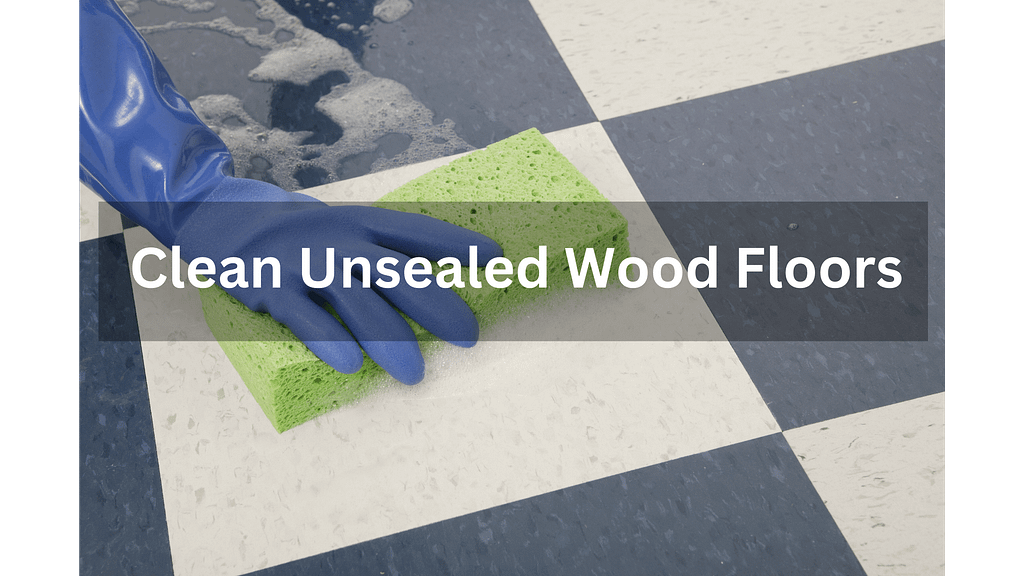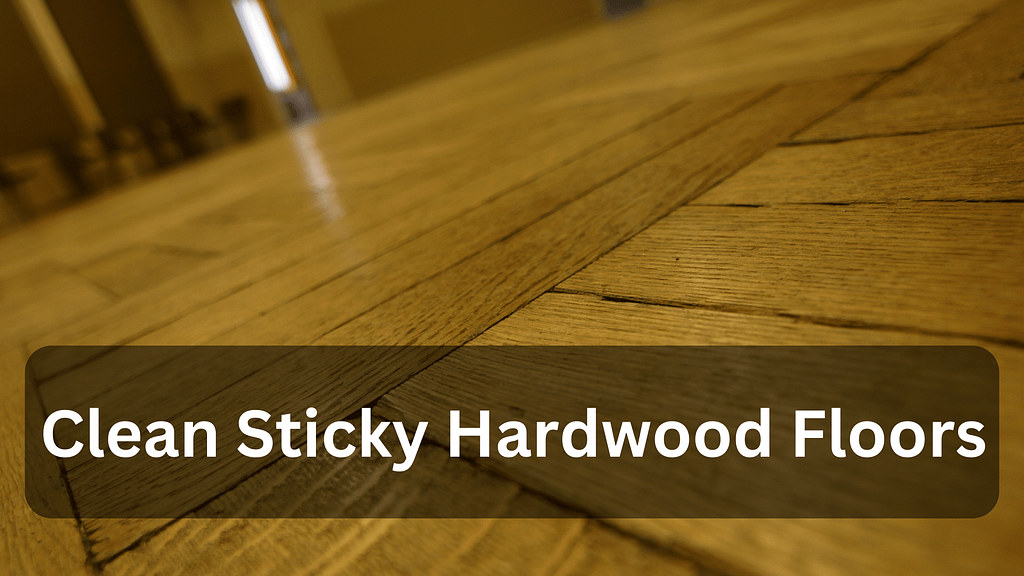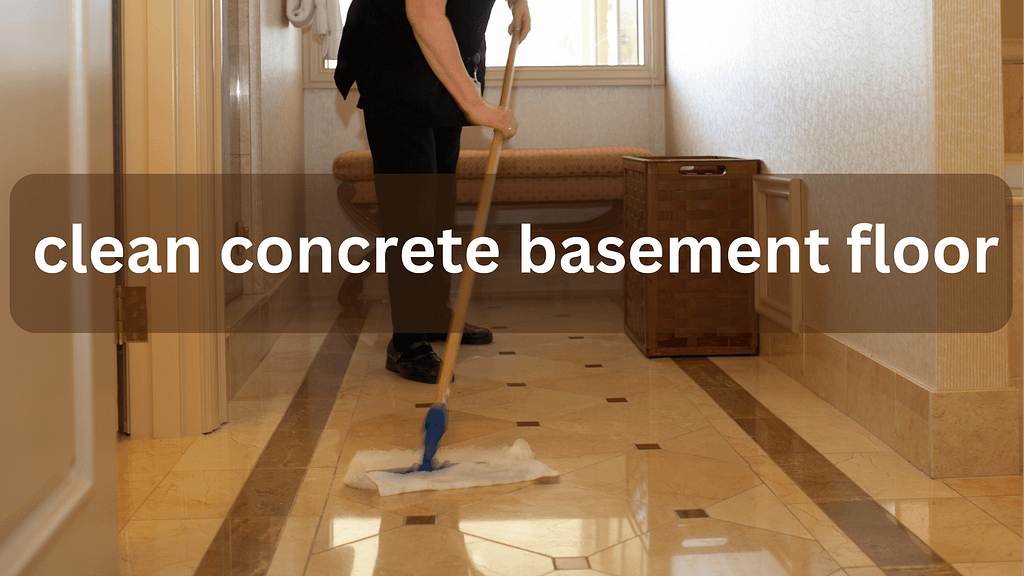Cleaning hard floors can be a confusing and controversial topic. With so many options available, it can be difficult to decide the best way to keep your floors clean and shiny. A popular and inexpensive option is to make your own laundry detergent at home using vinegar and water. Vinegar has long been known for its cleaning properties and can be a powerful tool in keeping your floors looking their best. In this blog, we’ll explore the benefits of using vinegar as a cleaning agent, discuss the science behind the cleaning power of vinegar, and provide step-by-step instructions on how to make your own vinegar floor cleaner. Whether your floors are hardwood, tile or laminate, a simple DIY floor cleaning recipe will keep your floors spotless.

Key Highlights
- Vinegar is an effective and affordable cleaning solution for hard floors
- White vinegar is the best type of vinegar to use for making a DIY floor cleaner
- Adding essential oils to the vinegar solution can provide a pleasant scent
- Vinegar should be diluted with warm water for safe and effective cleaning
- Different floor types require different cleaning techniques with vinegar solution
- It’s important to avoid using vinegar on certain surfaces such as natural stone and unfinished wood floors
Understanding Vinegar’s Cleaning Power
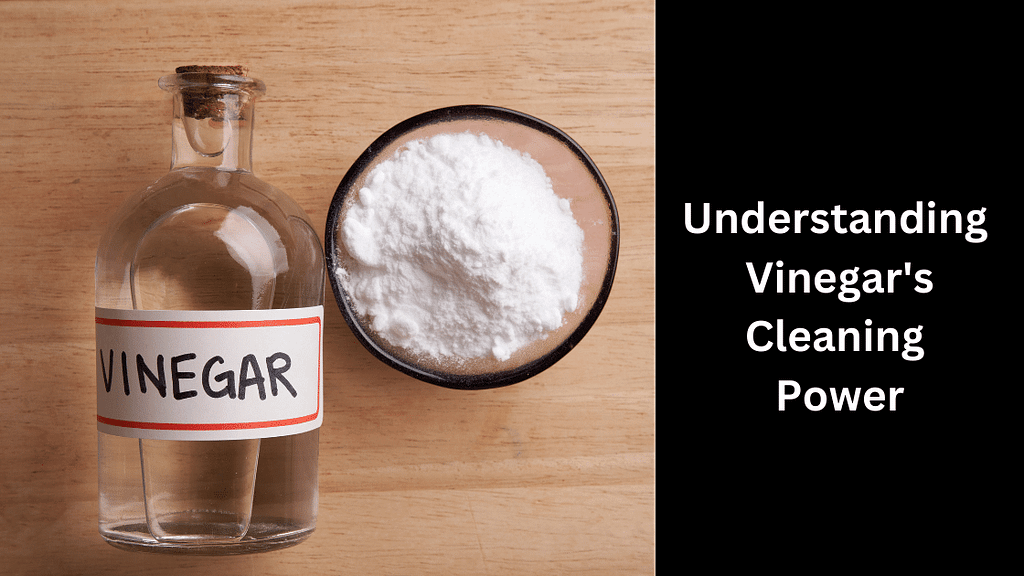
Vinegar, especially white vinegar, is a versatile and powerful cleaner. It has cleaning properties because it contains acetic acid. The acetic acid in vinegar acts as a disinfectant and helps kill germs and bacteria on your floors. However, it is important to remember that vinegar should not be used on certain surfaces, such as natural stone, because it can damage them. White vinegar is the best type of vinegar for cleaning because it is pure and does not contain other substances or colors that can stain or damage your floors.
The Science Behind Vinegar as a Cleaner
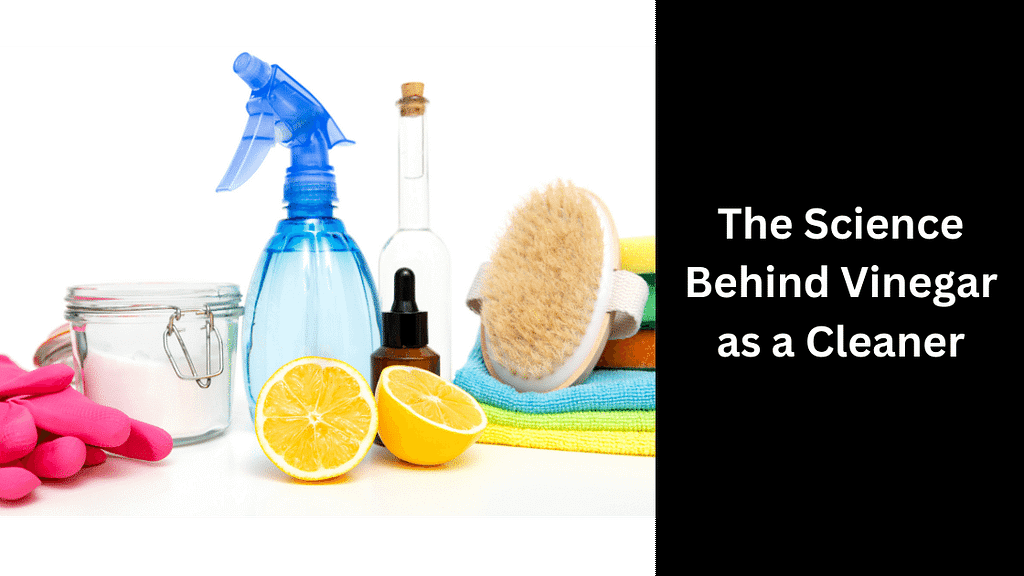
The acetic acid in vinegar acts as a cleaner, breaking down dirt and grime on your floors. It has a pH level of approximately 2.5, which is acidic enough to dissolve mineral deposits and remove skin blemishes. Vinegar, when combined with warm water, creates an effective cleaner that is safe to use on most floors. In addition to its cleansing properties, vinegar also has antibacterial properties, making it a good choice for homes with pets or children. It is important to remember that vinegar can be effective in cleaning and disinfection, but it should not be used for cleaning and disinfection purposes, especially in high-traffic areas or during cold seasons.
Comparing White Vinegar and Apple Cider Vinegar for Cleaning
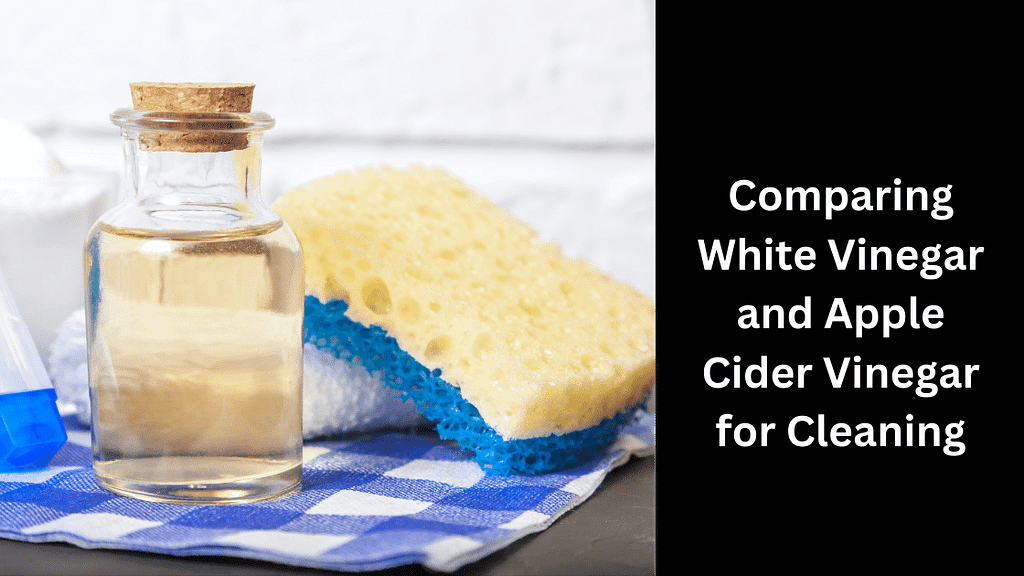
When using vinegar as a cleaning agent, the first choice is white vinegar. White vinegar is clear, while apple cider vinegar is darker due to the fermentation process. White vinegar is cheaper and easier to obtain than apple cider vinegar. Both types of vinegar contain acetic acid, making them clean products. However, white vinegar is often used to clean foods because of its mild and versatile scent. Apple cider vinegar can be used to clean it, but it will cause some damage to colored floors. If you use apple cider vinegar to clean, be sure to dilute it appropriately to avoid staining or damaging your floors.
Preparing Your DIY Vinegar Floor Cleaner
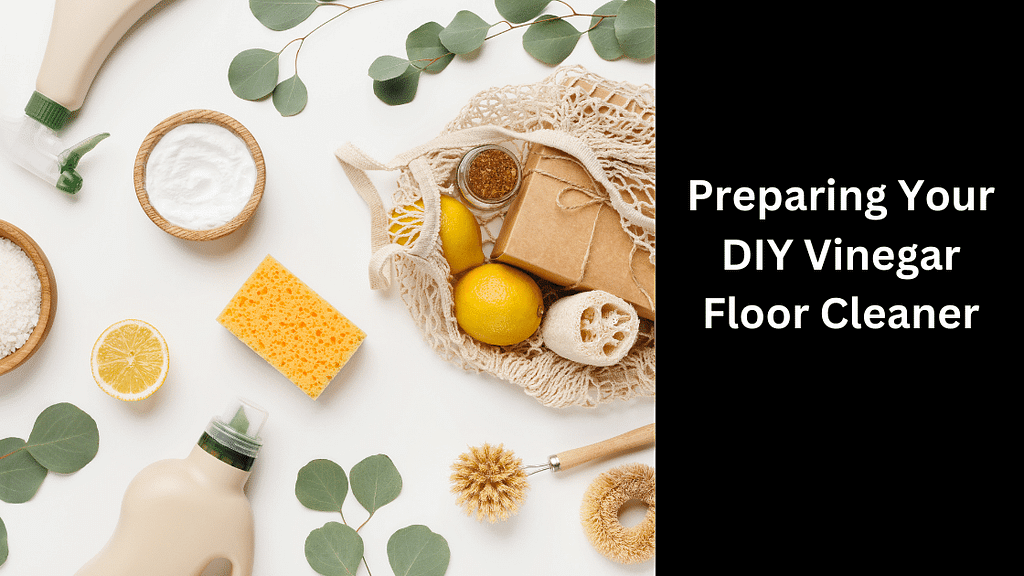
Before you start cleaning your floors with vinegar, you need to prepare your DIY vinegar floor cleaner. Ingredients for this simple but effective clean include white vinegar, warm water and a spray bottle. White vinegar is a basic cleaner, and warm water helps dilute the vinegar so it’s safe to use on your floors. Spray bottles allow you to easily apply cleaner to your floors without needing a mop or bucket. Once you’ve gathered your supplies and ingredients, you’re ready to mix up your DIY vinegar floor cleaner.
Essential Ingredients for Your Homemade Cleaner
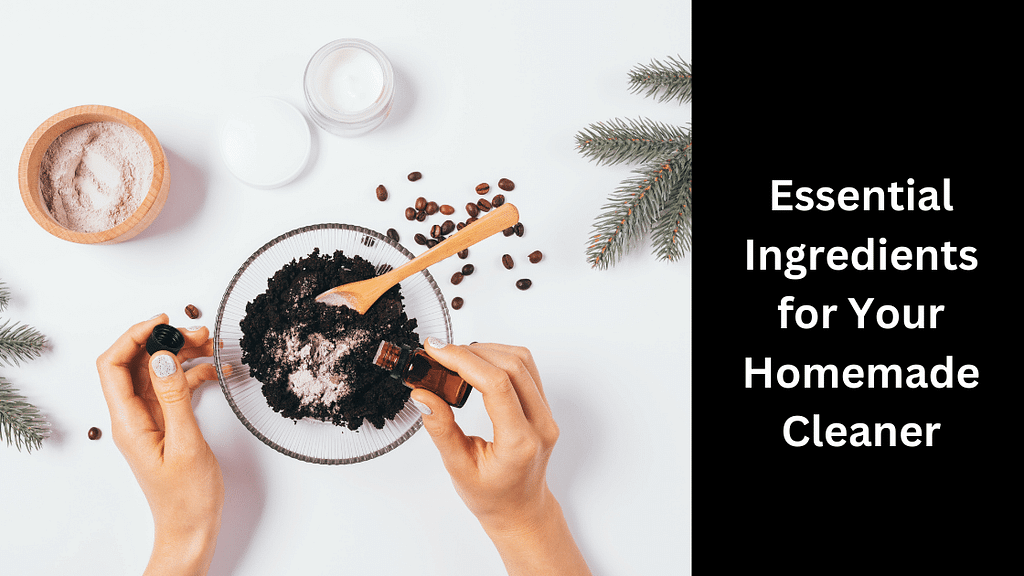
Adding a few ingredients to your laundry, in addition to plain fruit juice and warm water, can enhance its cleaning properties and give it a pleasant scent. Baking soda is a natural deodorizer that can help eliminate stains and odors from floors. It also acts as a mild abrasive to help remove dirt and grime. Essential oils like lemon, orange, or lavender can be added to the juice to give it a fresh scent. There are also disinfectants that boost the cleaning power of your home laundry. Finally, dilute the vinegar with warm water so you can use it safely on your floors. It is important to use warm water because hot water can cause the acid to evaporate too quickly and reduce its effectiveness.
Step-by-Step Mixing Instructions
Now that you have gathered all of your ingredients, it’s time to mix them together to create your homemade vinegar floor cleaner. Follow these simple step-by-step instructions to make your DIY cleaner:
- In a large spray bottle, combine 1/2 cup of white vinegar with 1 gallon of warm water.
- Shake the spray bottle gently to mix the vinegar and water together.
- Optional: Add a few drops of your favorite essential oil for a pleasant scent.
- Replace the spray bottle cap and shake the bottle again to evenly distribute the essential oil.
- Your DIY vinegar floor cleaner is now ready to use!
Application Techniques for Effective Cleaning
When using a DIY vinegar floor cleaner, there are a few application tips that can help you clean it well. First of all, it is important to use the right detergent. Do not soak your floor with vinegar or damage may occur. Instead, use a spray bottle to apply the cleaning solution to the floor. Then, use the mop or microfiber cloth to gently scrub the floor, focusing on particularly dirty or stained areas. Finally, rinse the mop or cloth frequently with clean, hot water to remove dirt and grime and wring it out before resuming cleaning.
Best Practices for Mopping Floors with Vinegar Solution
To ensure the best results when mopping your floors with a vinegar solution, it is important to follow these best practices:
- Use a clean mop that is in good condition. A dirty or worn-out mop can spread dirt and grime instead of cleaning it.
- Rinse the mop or cloth frequently in hot water to remove dirt and grime. This will help to prevent streaks and ensure a thorough cleaning.
- Avoid using excessive water when mopping. Too much water can cause damage to your floors and leave them looking dull.
- Work in small sections, focusing on one area at a time. This will allow you to give each section the attention it needs and ensure a thorough cleaning.
- Allow your floors to air dry after mopping. This will prevent streaks and ensure a shiny, clean finish.
Tips for Tackling Tough Stains and Odors
If you are dealing with tough stains or odors on your floors, there are a few additional tips that can help you tackle these issues:
- For stubborn stains, create a paste using baking soda and water. Apply the paste to the stain, let it sit for a few minutes, and then scrub gently with a cloth or sponge. Rinse the area with clean water and dry it thoroughly.
- To remove odors from your floors, add a few drops of your favorite essential oil to the vinegar solution. The essential oil will help to mask any unpleasant odors and leave behind a fresh scent.
- If you prefer a commercial household cleaner, look for one that contains vinegar as an active ingredient. These cleaners are specifically designed to tackle tough stains and odors and can be a great option for deep cleaning your floors.
Vinegar Solutions for Different Floor Types
Vinegar can be used to clean many types of floors, including hardwood, tile and laminate. However, for safe and effective use, it is important to use the correct sealant for each floor type. Different types of flooring require different maintenance, so it is important to choose the right care method for each type of flooring. In the next sections, we will talk about how to clean parquet, tile and laminate floors using vinegar.
Safely Cleaning Hardwood Floors with Vinegar
Hardwood floors are a beautiful and valuable investment, and it’s important to clean them properly to maintain their appearance and longevity. Vinegar can be used to safely clean hardwood floors, but it’s important to follow these guidelines:
- Dilute white vinegar with warm water in a spray bottle.
- Spray the vinegar solution onto a damp mop or cloth, and gently clean the hardwood floors.
- Avoid using excessive water or soaking the floors, as this can cause damage.
- Dry the floors thoroughly with a clean, dry cloth to prevent water damage.
- For tough stains or sticky residue, create a paste using baking soda and water. Apply the paste to the stain, let it sit for a few minutes, and then gently scrub with a cloth or sponge. Rinse the area with clean water and dry it thoroughly.
How to Clean Tile and Laminate Floors with Vinegar Solution
Tile and laminate floors can also benefit from the cleaning power of vinegar. To clean tile floors with vinegar solution, simply follow these steps:
- Dilute white vinegar with warm water in a spray bottle.
- Spray the vinegar solution onto the tile floors, and use a mop or cloth to gently scrub the floors.
- Rinse the mop or cloth frequently in hot water to remove dirt and grime.
- Dry the floors thoroughly with a clean, dry cloth to prevent water damage.
- For laminate floors, it’s important to use a damp mop or cloth rather than soaking the floors with water. Excessive moisture can cause damage to the laminate.
What to Avoid When Cleaning Floors with Vinegar
While vinegar is a powerful and effective cleaner for many types of floors, there are certain areas that you should avoid when using vinegar. Natural stone, such as marble or granite, can be sensitive to acids like vinegar and can be damaged by use. Unfinished floors can absorb moisture and acids, so it is important not to use acid in these areas. Vinegar should also not be used on surfaces with heavy mineral buildup, as the acidic nature of vinegar can react with food and cause yellowing or damage to the surface.
Common Mistakes and How to Prevent Them
When using apple juice as a floor cleaner, it is important not to make mistakes that could damage the smooth surface or damage the floor. One mistake is to use too much vinegar in the cleaning solution. Vinegar is acidic and will damage the finish of your floors, causing them to look dull over time. To prevent this from happening, remember to dilute the vinegar with water. A good example is 1/2 cup vinegar to 1-2 gallons of warm or hot water. This will ensure that the acidity of the vinegar is neutralized and does not damage the floor. Another mistake is using too much water in detergent. Too much water can cause swelling and cracking, especially on wood floors. Before using the mop on the floor, be sure to wring it well to prevent the floor from becoming saturated with water.
Surfaces and Materials That Should Not Be Cleaned with Vinegar
Although vinegar is a good hand cleaner, there are some areas and materials that should not be cleaned with vinegar. Such a surface is natural stones such as marble or granite. Over time, the acidic nature of vinegar can corrode the stone surface and cause damage. Instead, use mild soap and hot water to clean natural stone. Synthetic fibers, such as those found in carpets or rugs, should be avoided when using vinegar. Vinegar can discolor or damage the fibers. Instead, wash synthetic fibers with a mixture of water and mild soap. If you’re not sure whether vinegar is safe for a particular area, it’s a good idea to test a small, inconspicuous area first to check for any side effects.
Enhancing Your Vinegar Floor Cleaner
While vinegar and water clean the floor on their own, you can increase its cleaning power and scent by adding essential oils and other natural products. Essential oils not only have a pleasant scent, but they also have antibacterial properties that help kill germs on your floors. Some essential oils commonly used in floor cleaners include lemon, tea tree, lavender, and eucalyptus. For extra cleaning power, you can try natural products like baking soda or hydrogen peroxide. Be sure to dilute additives correctly and follow recommended usage precautions.
Natural Additives for Extra Cleaning Power and Fragrance
If you want to add extra cleaning power and scent to your acid floor, there are many products you can try. One option is to add lemon juice to the vinegar and water mixture. Lemon juice is an effective disinfectant that can help remove oil and dirt from your floor. You can try using different essential oils to add a pleasant scent to your washing machine. Some popular choices include lavender, tea tree, and eucalyptus. Another natural product to consider is baking soda. Baking soda can help remove stains and odors from floors. Just pour it on the floor, spray it with acid and water, and scrub it with a mop or brush. These natural ingredients increase the cleaning power and scent of floor cleaners.
DIY Recipes for Specialized Floor Cleaning Needs
Sometimes, you may need a specialized floor cleaner for specific cleaning needs. Whether you have hardwood floors, tile floors, or laminate floors, there is a DIY recipe that can meet your needs. Here are some recipes for specialized floor cleaning:
Text Table:
| Surface Type | Recipe |
| Hardwood Floors | 1/2 cup vinegar + 1 gallon warm water + a few drops of essential oil |
| Tile Floors | 1/2 cup vinegar + 1 gallon warm water + a squirt of dish soap |
| Laminate Floors | 1/2 cup vinegar + 1 gallon warm water |
These recipes can be adjusted based on the size of your cleaning needs. It’s important to note that these recipes are for regular cleaning and maintenance. For tougher stains or specialized cleaning, it may be best to consult a professional cleaning company that specializes in floor cleaning.
Maintaining Clean Floors After Using Vinegar Solutions
After cleaning your floors with vinegar, it is important to keep them clean through daily cleaning and long-term maintenance. Daily cleaning includes simple tasks such as sweeping or vacuuming to remove dirt and debris. You can use a microfiber mop or cloth to quickly wipe up spills or stains. Long term maintenance includes deep cleaning and maintenance to keep your floors looking their best. This may include refinishing or waxing wooden floors or cleaning carpets. You can keep your floors clean and well-maintained by incorporating daily cleaning and long-term maintenance into your routine.
Daily and Weekly Cleaning Tips
It is important to follow a daily and weekly cleaning routine to keep your floors clean after using the juicer. Daily cleaning includes simple tasks such as sweeping or vacuuming to remove dirt, dust, and debris. A microfiber mop or cloth can be used to quickly wipe up spills or stains. It is important not to use too much water or detergent every day as this can cause damage or dulling. Instead, focus on dry cleaning for routine cleaning. Weekly cleaning may include a variety of tasks, such as wiping down with a vinegar and water solution or deep cleaning with a vacuum cleaner. You can keep your floors clean and well-maintained by incorporating daily and weekly cleaning into your routine.
Long-Term Floor Care Strategies
In addition to daily and weekly cleaning, a long-term floor maintenance strategy is also necessary to keep your floors clean and looking good. This includes deep cleaning to remove dirt and grime. Depending on the type of floor covering, this requires the use of special cleaning products or equipment. It is also important to use furniture to protect your floors from scratches and damage and not to place heavy or sharp objects on the surface. Regular maintenance, such as buffing or waxing your wood floors, can help extend their life and keep them looking their best. By implementing a long-term floor care strategy, you can ensure that your floors remain clean, well-groomed and beautiful for years to come.
Conclusion
In conclusion, making and using a DIY vinegar floor cleaner is a cost-effective and environmentally friendly way to keep your floors clean. By understanding the cleaning power of fruit juice and following mixing and application techniques, you can solve difficult stains and odors on different floor types. Remember to avoid mistakes and use vinegar only in the right place to prevent damage. Enrich your hand sanitizer with natural ingredients for more potency and fragrance. Regular maintenance with vinegar can help keep your floors shiny and clean. If you have any questions about using apple juice as a floor cleaner, please visit our FAQ section for guidance.
How to Fix Tire Bubble
Frequently Asked Questions
Can I Use Vinegar Floor Cleaner on All Floor Types?
Although it is safe to use vinegar on many floor types, it is worth noting that it may not be suitable for every floor type. Natural stone floors such as marble or granite can be damaged by vinegar. It is best to consult your flooring manufacturer or specialist for specific instructions on how to care for different types of flooring.
How Often Should I Clean My Floors with Vinegar?
How often you clean your floors with vinegar depends on your personal needs and preferences. In general, once a week is enough for regular maintenance. However, if your floors are dirty or in high-traffic areas, you will need to clean them more often.
Is It Safe to Mix Vinegar with Other Household Cleaners?
It is not recommended to mix vinegar with other household cleaners, especially bleach. Vinegar and bleach can create toxic fumes that can be harmful to your health when mixed together. It is best to use apple cider as a laundry detergent or check with the manufacturer of other household cleaners for similar information.
Can Vinegar Damage Floor Finishes?
While vinegar is generally safe to use on most finished floors, it is important to test it on a small, inconspicuous area first to check for any side effects. Some floor finishes, such as wax or some types of polyurethane, can be more acidic and can be damaged by the acid.


